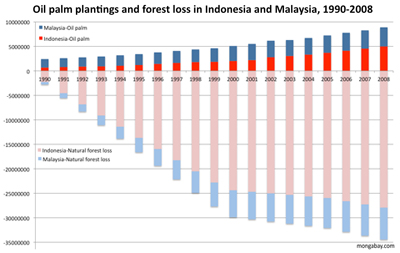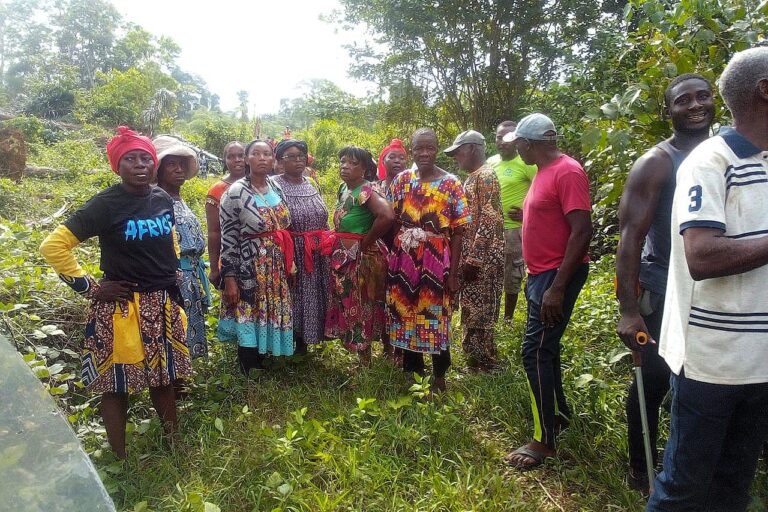A review of mongabay.com’s February 2011 stories.
Three of the 10 most popular articles on the mongabay.com news site during the month of February were about palm oil.
The most visited item was a feature written in January that provides an overview of the social and environmental issues associated with oil palm expansion on forest and peat lands. But a hopeful palm oil story also ranked well: the decision by Golden Agri Resources (GAR) to adopt a comprehensive forest policy that prohibits conservation of conservation value forest areas, peatlands, and high carbon ecosystems. The policy also requires GAR, Indonesia’s largest palm oil producer, to get free prior informed consent (FPIC) from local communities potentially affected by new plantations. While the story might be easily dismissed as a public relations stunt, there is reason this time to believe the policy is more than marketing—Greenpeace, one of GAR’s fiercest critics, has cautiously welcomed the deal. The Forest Trust, a Switzerland-based NGO, will help GAR implement the policy.
 Expansion of the oil palm estate and natural forest loss in Indonesia and Malaysia, 1990-2008. Click image to enlarge |
The third most popular palm oil post reported on a recent assessment of Sarawak’s forest cover. The study, conducted by by environmental group Wetlands International and remote sensing institute Sarvision, found that more than one third (353,000 hectares or 872,000 acres) of Sarawak’s peat swamp forests and ten percent of the state’s rainforests were cleared between 2005 and 2010. About 65 percent of the area was converted for oil palm. Malaysia’s response to the report was curious—Natural Resources and Environment Minister Datuk Douglas Unggah Embas questioned the analysis, while the president of the Malaysian Nature Society, Maketab Mohamed, was quoted as saying that remote sensing couldn’t be used to reliably measure deforestation. Mohamed later told mongabay.com via email that he was misquoted by the press.
Mongabay’s interview with Gilberto Camara, head of Brazil’s space agency INPE, also drew a lot of interest, including a retweet from Sophia Bush, an American actress. Camara discussed Brazil’s advanced deforestation monitoring system.
Two other interviews ranked in the top 10 most popular news articles for the month: an interview with marine biologist and accomplished author Carl Safina of the Blue Ocean Institute, and a Q&A with Michele Raffin, who is on a private mission to save some of the world’s most threatened birds.
Finally, one of the biggest stories of the month was a happy one for environmentalists: Sabah announced it would not proceed with a controversial coal-fired power plant that threatened some of the Malaysian state’s richest ecosystems. Local activists had waged a long campaign against the project, which Dan Kammen, a renewable energy expert with UC Berkeley and the World Bank said was unnecessary given Sabah’s cleaner energy options.














